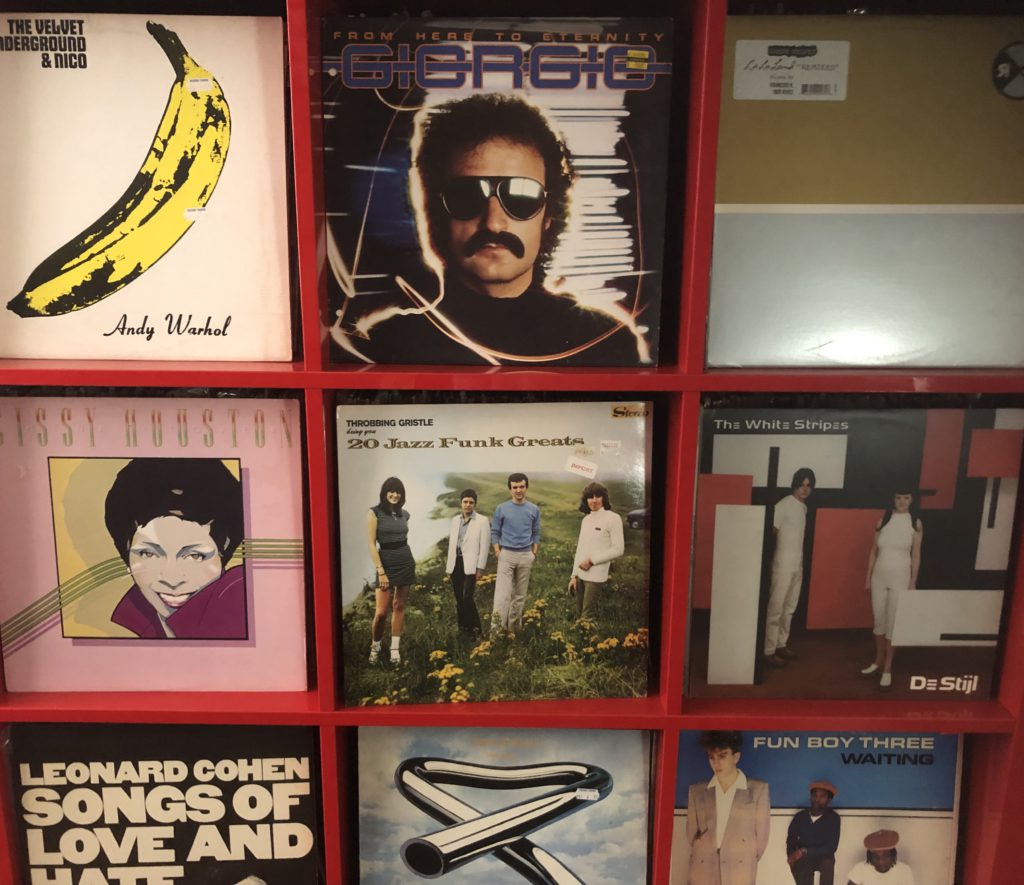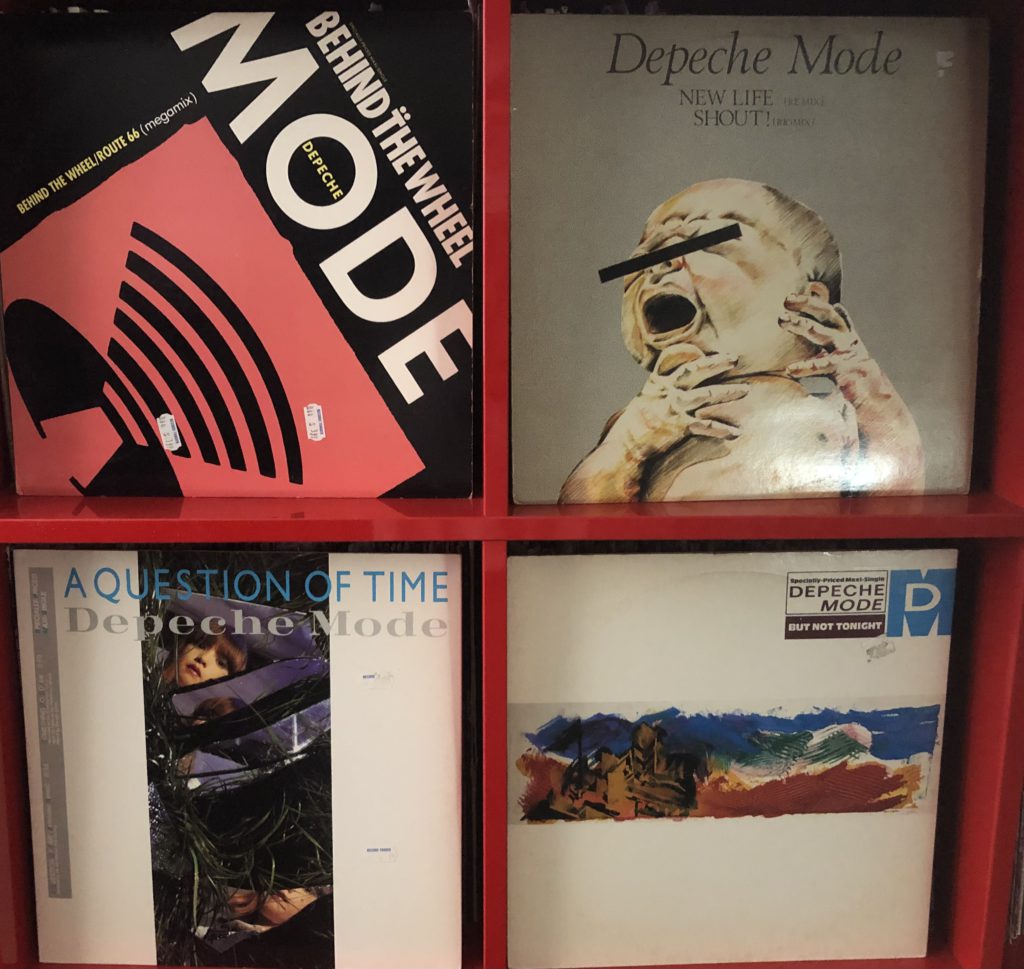
In many ways, I don’t think of myself as a record collector. I’m someone who happened to start DJing when CDJs were not as user-friendly as turntables and vinyl, particularly dance and alternative music from the ‘70s and ‘80s, fit my college student budget. Many years later, though, I’ve managed to build a record collection that I still sometimes use to DJ. Mostly, though, it’s a source of personal enjoyment.
Over years of crate digging, I’ve learned how to build a record collection. I’ll share what I learned here, beginning with how to source records in a way that’s sustainable for you.
Know Why You’re Collecting Records
Record collecting can be really expensive. It’s possible to do it on a budget, but that takes a lot of time. So, if you are planning to build a record collection you should have a good reason for doing it.
Don’t start collecting because you think it’s a financial investment. Those “most expensive records” lists on Discogs might lead you to believe there’s a lot of money to be made in flipping vinyl, but read about those high-priced collectibles first. If a record is going to fetch thousands of dollars, it is legitimately rare, in-demand and in stellar condition. That’s not most records. That’s not even most records marketed as limited edition or exclusive.
Buy vinyl because you want it in your life. That’s a good enough reason. However, more specific reasons for collecting vinyl will give you direction when you shop.
Buy what fits your needs. If you play records in your DJ sets, a worn sleeve isn’t a problem so long as the record is in good condition. If you want to display album art at home, look for clean covers.
Set Rules
Set rules for yourself before you start digging. These are entirely personal guidelines that coincide with your budget and reasons for collecting.
Set price limits for impulse buys, items on your wish list and Holy Grail records. Be reasonable. It’s okay to say, “I can’t afford to buy this album, but I can afford this one.” I do this all the time.
Carefully go through the stacks you pull before you make purchases. Do the rough math in your head, or with your phone’s calculator, and see if it falls within budget. If you’re over budget, take out the items you know you will see again and the ones that aren’t at the top of your wish list.
Go slow
Talk to anyone with a killer record collection and you’ll learn that they’ve been digging for years. Collections don’t manifest overnight.
When I wrote about my own crate digging passion for Shondaland, I realized how much my collection is like a diary. Record collections grow and expand with your interests and life experiences. They’re an archive of sounds that meant something to you at various different points in your life. So, take it slow and let it grow.
Look towards the people closest to you
When I got my first turntable, I headed to my parents’ garage and grabbed a few of my mom’s old records. I still have her copies of Elton John’s Tumbleweed Connection, Donovan In Concert and probably a few other things.
Over the years, friends and family have kindly given me their old vinyl, which has led very cool and unexpected additions to my record collection. In some cases, these inheritances took me down musical paths that I never thought I would wander, like when I came into my grandpa’s stash of Armenian-American-made exotica records. (That actually led to two separate stories I wrote in 2022, one for KCET and one for LAist.)
All this is to say is that there are probably people who are very close to you— i.e. your parents, grandparents, aunts and uncles— who have vinyl that they don’t want anymore. Let them know that you’re currently accepting donations.

Shop Local
If you have access to any brick-and-mortars that sell vinyl in your area, start there. I’m not just talking about record stores. Scout out the indie book stores and gift shops with music sections, thrift stores, antique malls, etc. Flea markets and swap meets may have record vendors as well. Get ready to dig. There will be times when you come up empty-handed, but keep searching. There will be surprises when you least expect them. That’s the best part of record collecting.
As for proper record shops, support those in your town or city. Chat with the folks at the register. If you’re looking for something, ask them about it. When it comes to new releases, this is particularly important as it can impact what stores try to get in stock.
Whenever possible, supporting your local record seller is ideal. Shopping in-person means that you can inspect used records before you buy them. (You might be able to hear them too, if the shop has a listening station.) It’s an opportunity to get recommendations from people who listen to a lot of music. Plus, you’re doing your part to help keep local businesses afloat.
In the process, you might learn about the stories behind the stores where you shop, like San Pedro shop JDC‘s history as a disco/hiNRG label and distributor.
If you’re in L.A., check out this list of record shops that I compiled for Discover Los Angeles and start hunting.
Always check the bargain bins
Inside record stores, you’ll probably notice a few bins of budget-friendly vinyl. The actual price will vary depending on the shop. It might be $5 and under or $2 and under or .99 cents. Whatever it is, make sure you spend some time here.
Sift through the bargain bins and you’ll likely find some records in questionable condition and some of questionable taste. Amidst those, though, could be your new favorite jam.
Approach the bargain bins with an open mind and know that you’re taking a gamble. You might play your find at home and realize it’s crap, but, if you spent $2 on it, it’s not much of a loss.
Buy from the bands you see live
At shows, head to the merch booth and see what vinyl the bands have in stock. Sometimes, you’ll see releases that aren’t available at your local shops. Even if you can get the records elsewhere, though, it’s generally a good idea to buy directly from the band as touring is expensive and the purchase can help them afford to continue on the road. Bring cash, just in case that’s the band’s preferred method of payment.
Note that, recently, a number of bands have spoken out online about venues who take a significant percentage of merch booth profits. If you’re aware that this is the case for someone you’re set to see live, maybe drop a Q on social and ask if buying from the merch booth is the best way to support them, or if there is an alternative.
Be mindful of what you buy online
Online marketplaces are a very convenient way to build a record collection. Between the cost of the record and shipping fees, though, this method can drain your wallet quickly.
For some people, particularly those who live in places where the vinyl pickings are slim, online purchases are the only way you can build a record collection. If you live in a city with plenty of record stores, though, make sure you exhaust your local resources before you jump onto Discogs or eBay.
There have been a few occasions where I came close to ordering a record from a seller outside the U.S., only to stop when I noticed shipping was two or three times the cost of the record. In those instances, I did, ultimately, find the record in L.A. for a reasonable price.
My general rule is that I’ll buy online if I haven’t been able to find something after a few months of active local searching and the price (shipping included) is comparable to what I expected to pay for it in a store.
Check out Los Angeles-based DJ Liz O. at one of her upcoming gigs.